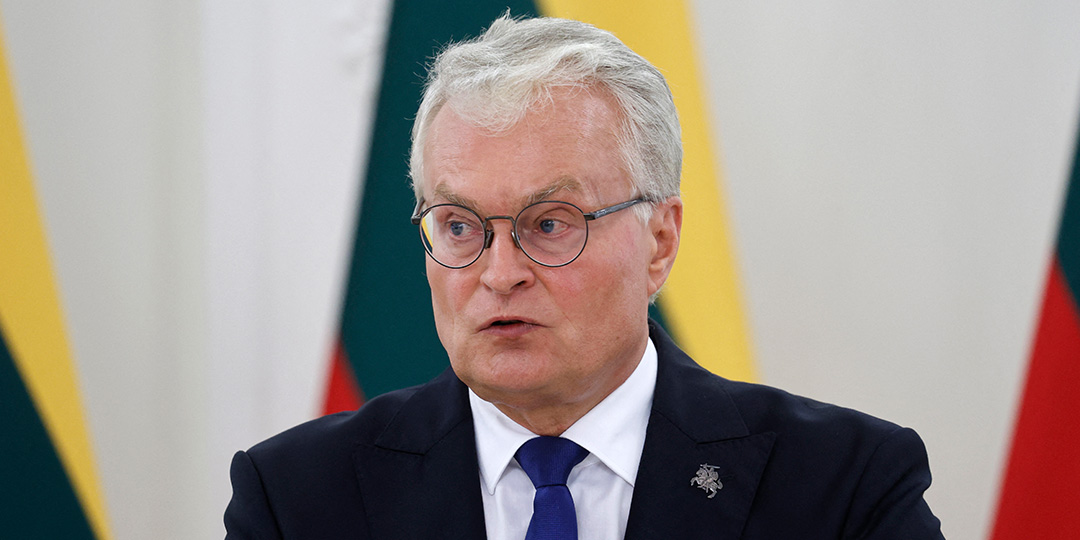Lithuania on Tuesday requested NATO assistance in bolstering its air defences after revealing that a Russian military drone that flew into the Baltic state last week was carrying explosives.
Foreign Minister Kestutis Budrys said that the incident was one of several similar recent ones, calling them “an alarming sign of the spillover of Russia’s aggression against Ukraine onto NATO territory”.
Budrys said he had written to NATO chief Mark Rutte to ask for “immediate measures to enhance air defence capabilities in Lithuania”, including with air patrols from the country’s NATO allies.
Lithuanian Defence Minister Dovile Sakaliene said that the country was forming mobile groups to respond to drone threats as well as deploying “an air defence unit equipped with short-range weapons”.
The drone flew in from Kremlin ally Belarus, which neighbours Lithuania, on July 28 and was spotted flying over parts of the capital Vilnius.
Russia regularly flies missiles and drones aimed at Ukraine over Belarus, which was also one of the launch points for its full-scale invasion in 2022.
The drone was eventually found in a military training area on August 1. Lithuanian officials said they believed it was a drone model called Gerbera, used for attack and surveillance missions.
Prosecutor-general Nida Grunskiene said it was “carrying an explosive device, which was successfully neutralised by Lithuanian armed forces specialists at the scene”.
“One of the main theories of the investigation is that the unmanned aircraft accidentally entered Lithuanian territory.
“I would like to stress that other theories are being investigated in parallel,” she said.
Lithuanian air force chief Dainius Paskevicius said that “around two kilogrammes of explosive materials were found”.
Another Gerbera drone flew into Lithuania from neighbouring Belarus last month, causing alarm before the authorities declared it was not dangerous.
“This marks the second such incident in less than a month. Similar airspace violations have also been reported recently by other allies,” Budrys said.
“The threat is real and growing,” he added.
Russian drones and missiles have also entered and exited the airspace of NATO members Latvia, Poland and Romania several times in the three and a half years of war.
Russian drone fragments have been found in Latvia and Romania.
Budrys said that Belarus had a responsibility to prevent such incidents in Lithuania.
“If Belarus fails to take action to minimise the potential damage on our side, Lithuania will respond with political and other measures,” he said.
ben/bc
© Agence France-Presse








